Research Projects
AVIK – Automatisierte Boden-Luft-Vernetzung von Mobilitätsakteuren zur Verbesserung von Interaktion und Kollaboration
AVIK (acronym; engl.: automated ground-air intercommnunication in mobility for enhancing interaction and collaboration) focuses on automating and enhancing the interconnectedness of different vehicles and mobility actors (e.g. drones and cars) in the context of data transmission, harmonization, aggregation and monetization.
Funding:

DiBiChain – Digitales Abbild von Kreislaufsystemen mittels einer Blockchain
Today’s product life cycles are complex and decentralized. It is often difficult to judge the sustainability of a product and its compliance with ecological and social standards. The DiBiChain project partners aim to develop a blockchain system that provides a digital replica of the product life cycle. This will make it possible to transparently trace a product “from cradle to grave” and distribute indirect costs equitably among stakeholders. One of the Blockchain Research Lab’s key contributions will be the design of the blockchain’s incentive structure, which will enable the comprehensive tracking of direct and indirect costs.
Funding:

STEREO – Sichere Digitale Identität für kommunale Mobilitätsservices
The core objective of STEREO is a practical approach to the demonstration of secure digital identities on the basis of use cases implemented by the participating consortium partners. IT services based on blockchain technology represent the basis for more efficient mobility in the selected application scenarios from vehicle registration to daily vehicle use. STEREO establishes the simple and seamless usability of digital identities and thus creates the basis for a broad acceptance across different applications. The combination of digital identities of natural persons, legal entities and vehicles enables a variety of simplifications and automations. STEREO thus addresses the area of conflict between process digitization and data and legal security.
Funding:
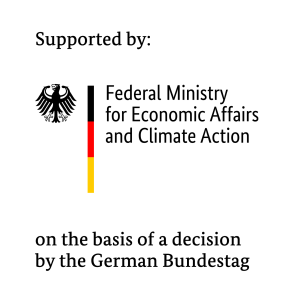
Economic Valuation of Physical Activity
Economic Valuation of Physical Activity: A Multilayered Framework
The project aims to develop a conceptual multi-layer framework for the economic value of physical activity, relying on a systematic literature review approach. Building on the identification and analysis of existing concepts and results on physical activity assessment and valuation, results are classified and synthesized utilizing a concept matrix. After synthesizing key concepts, theories, and findings from the literature, a conceptual framework will be developed that accounts for the interrelation of different concepts and offers options for practical implementation. The result will provide academia and practice with an objective basis for valuing physical activity and can, for example, be applied to evaluate the value of “active days” by walking 10,000 steps or more per day. The proposed approach is multidimensional, examining the impact from an individual, industry, and government perspective, and will thus inform a broad discourse.
Funding:

Local Investment Options for Individual Investors: Analysis and Evaluation of Security Tokens as a Business Model for German Cooperative Banks
The research project funded by the DZ BANK Stiftung aims to analyze and evaluate the potential of security tokens in the context of issuing and distributing local securities for private investors. In particular, the project investigates to what extent security tokens could be used as a promising future business model by cooperative banks. At the current time, individual investors are generally unable to invest in securities issued by smaller, local companies due to the high effort and complexity involved in the issuance process. Blockchain-based security tokens offer an efficient way to securely and comparatively inexpensively represent fine-grained, more specific or local securities. Consequently, their use could unlock market potential to fill investment and financing gaps. The use of security tokens by cooperative banks opens up special opportunities for the establishment of new business areas, since cooperative banks are characterized by a dense branch network and long-standing relationships with local companies and customers.
Funding:

The Influence of Transaction Costs on Economic Activity on the Ethereum Network
The aim of the project is to investigate the extent to which transaction costs interrelate with different economic activities on the Ethereum network. On Ethereum, a variety of applications or sectors exist that have different levels of turnover and thus fee-dependency. Major applications include, for example, stablecoins, NFTs, marketplaces, or lending protocols. By applying time series analysis, it will be analyzed how fees causally influence a) the number of users and b) the economic volume both in general and specific sectors. Vice versa, it will also be analyzed how fees are influenced by certain economic activities. The results of the study can help provide a basis for understanding the extent to which the level of fees favors or hinders individual applications or industries on Ethereum. Consequently, the findings can serve as a basis to better plan, support or promote economic activities on the Ethereum blockchain—both before and after the merge to ETH 2.0.
Funding:
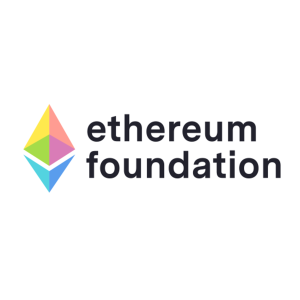
Research Areas
Exploration of an Open and Inclusive Metaverse
The metaverse is by no means a clearly defined concept, but rather a complex compilation of various characteristics that have their basis in the science fiction literature. In this context, the metaverse is often understood as a virtual world, as portrayed in films such as The Matrix. We are currently at a point where the metaverse of the future can either be designed and controlled centrally by a few companies, or it can be designed inclusively and openly. An open and inclusive metaverse puts ownership and control of digital assets and experiences in the hands of its creator economy (i.e. stakeholder empowerment) and allows portability (i.e. users are able to port their assets and experiences from one metaverse application to another). The project will explore the phenomena of an open metaverse in order to contribute to the long-term positive development of the metaverse.
Research Network:

Research on the Economics and Relevance of Stablecoins
Stablecoins are digital currencies that peg their value to other assets, most often the U.S.-Dollar but also other fiat currencies or physical assets such as gold. They exhibit a significant importance in cryptocurrency markets and are becoming increasingly relevant for other markets and applications This has sparked the interest of researchers across disciplines. The research project will use qualitative and quantitative approaches to explore the relevance, challenges, significance, and future of stablecoins. The results should contribute to the understanding and a positive development of stablecoins.
Research Network:
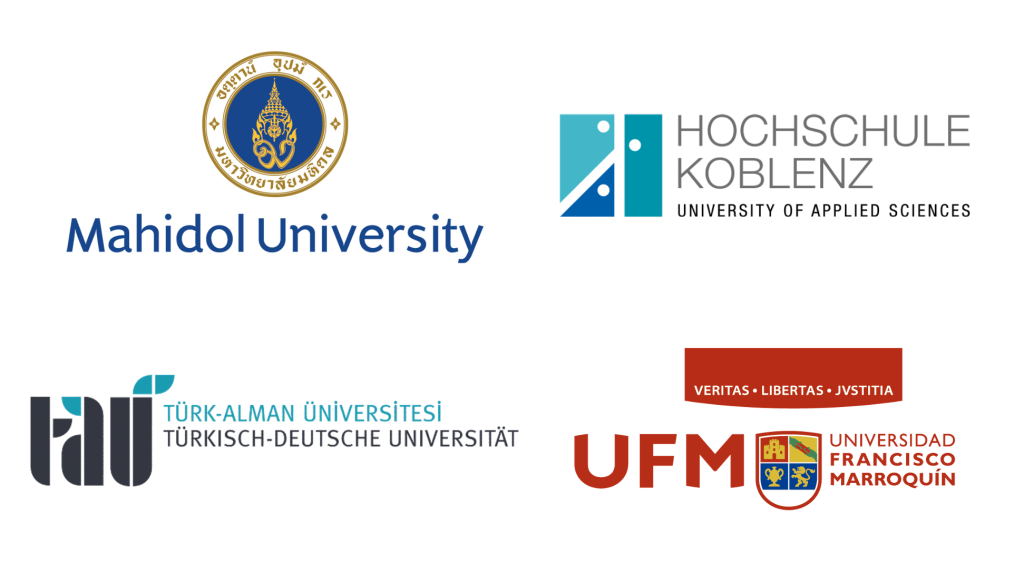
Crypto Investors and Users
Research on the Adoption and Relevance of Crypto Assets in Society
Crypto assets have become a significant phenomenon for society. However, it remains an open question how significant they really are, why and how individuals acquire and hold crypto assets, and what they ultimately use them for. The aim of the project is to further the general understanding of the adoption, possession and usage of crypto assets. Based on population surveys, different issues are analyzed in the context of cryptocurrency adoption, investment and usage. The results provide a basis for science, practice and society to better assess the importance of crypto assets.
Research Network:
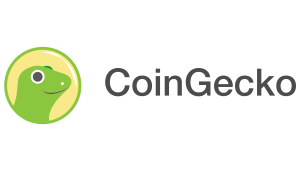
Non-fungible Tokens (NFTs)
Research on NFT adoption, ownership, and utilization, as well as NFT markets
Non-fungible Tokens (NFTs) have emerged as a notable development in the digital realm. However, the true significance of NFTs, the reasons and methods behind their acquisition and retention, and their ultimate applications remain unclear. The objective of this project is to enhance the overall comprehension of NFT adoption, ownership, and utilization, as well as NFT markets. By leveraging empirical methodologies, various aspects of NFT adoption, investment, and usage are examined. The findings offer a foundation for academia, industry, and society to more accurately evaluate the importance of NFTs.
Blockchain in Sports
Research on the utilization of blockchain and crypto assets in the sports sector
Blockchain technology and crypto assets have begun to make a significant impact on the sports industry. This research project aims to explore the adoption, integration, and potential applications of these emerging technologies within sports. By analyzing case studies and industry trends, such as fan tokens, the study seeks to shed light on the potential benefits, challenges, and future direction of blockchain and crypto assets in sports, providing valuable insights for stakeholders, sports organizations, and enthusiasts alike.
Research Network:
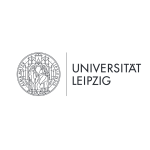
Circular Economy and Supply Chains
Research on the use of blockchain technology for circular economy and supply chains
Blockchain technology and crypto assets are revolutionizing the circular economy and supply chains, presenting new opportunities for sustainability and efficiency. This research project seeks to explore the impact of these emerging technologies on resource optimization, waste reduction, and value creation. The project aims to elucidate the potential benefits and challenges of integrating blockchain and crypto assets into circular economic models and supply chain management, providing valuable insights for academia, industry, and policymakers alike.
Blockchain, Crypto Assets and Gambling
Research on the interrelations of crypto assets, blockchain and gambling
Blockchain technology and crypto assets have begun to reshape the landscape of the gambling industry, influencing both gambling platforms and payment methods. The research topic aims to explore the practical, theoretical and societal implications of integrating these emerging technologies into gambling practices. The project will examine the adoption and impact of blockchain-based gambling (platforms) and the use of crypto assets for payment transactions. This comprehensive analysis will contribute valuable insights to stakeholders and regulators.